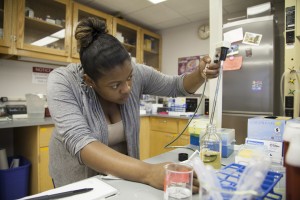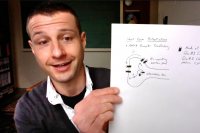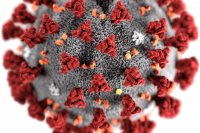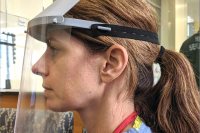
Summer Student Work: Franklin and Glassman tag team on snail brains
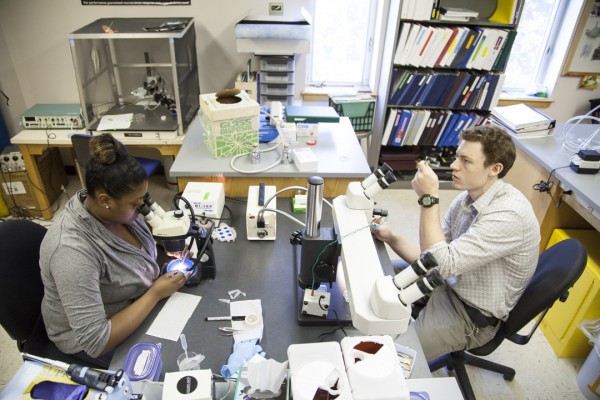
Destany Franklin ’14, left, and Caleb Glassman ’14, right, conduct research in a lab run by Nancy Kleckner, associate professor of neuroscience, on July 30, 2013. Photograph by Marc Glass ’88/Bates College.
Two rising seniors share insights into life in a summer research lab as they study the neurobiology of snail brains.
Names: Destany Franklin ’14 and Caleb Glassman ’14
Hometowns: Franklin is from Seattle, Wash; Glassman from Radnor, Pa.
Majors: Franklin majors in neuroscience; Glassman in neuroscience and biochemistry.
Adviser: Nancy Kleckner, associate professor of biology, who studies the nervous systems of ponds snails like Helisoma trivolvis.
Research Funding: IDeA Networks of Biomedical Research Excellence, a program of the National Institutes of Health. Bates awards INBRE grants to faculty and students conducting research in cell and molecular biology, biochemistry and neuroscience.
1. Describe the research you’re doing this summer.
Glassman: We study pond snail feeding behavior by recording the cells in the snail’s ganglion, or brain, and also by looking for signaling molecules through staining processes.
Franklin: That staining process is called immunocytochemistry, which involves taking the brain and adding a hormone or an antibody. We look under a microscope with special fluorescent lighting that shows whether or not neurons and cells are being activated, or fluorescing, due to that antibody.
2. The snails are pretty tiny. You must need very small instruments to study their brains.
Franklin: We spent a week or two just trying to steady our hands.
Glassman: One skill that you’ll learn in this lab is a lot of fine motor control.
Franklin: We use pins to stretch out the tissue of the snail’s central nervous system in order to get a tight picture of what we’re doing. It’s really important for Caleb to pin everything out tightly because he needs to actually stick a really small glass electrode into cells within the brain. The pins themselves are like microscopic nails.
Glassman: The tip of the pin is not that much smaller than the thing you’re trying to pin.
3. How does this summer research connect to your studies during the year?
Franklin: We’re both doing our senior theses with Nancy, continuing the work that we’re doing here with these snails.
Glassman: Here in the lab I do electrophysiology, so I’m actually recording from neurons. It’s reinforcing to see the effects of what I learn about in class. To actually see the voltage change over the time scale is a lot different than just hearing about it. Textbooks sometimes oversimplify ideas, but in lab nothing is simplified.
4. Do you have different work styles? How do you work together in the lab?
Franklin: Caleb uses special equipment, so he gets his own little room. I don’t necessarily need to be in there. It’s a big lab, so we’re pretty lucky. When he does come out here, I give up some of my materials for him to use — I kind of take ownership until I have to share.
Glassman: I really like lab work because it allows for a lot of flexibility. I wake up very early and get into lab at seven so I can get my work done. But my work is a lot of hands-on stuff. It can be many hours of work before I actually start generating data, which can sometimes be frustrating, especially when preps don’t work out. I like having that control over my work, though.
5. What are the best and most challenging things about working with your adviser, Nancy?
Franklin: She welcomes all types of questions, even if it’s the simplest or craziest question in the world. She also admits to not knowing an answer and will help you research what the answer is. That’s really humbling.
Glassman: I think the best part of working in this lab is learning to deal with failure and knowing Nancy will support me. During the semester, there’s no time to fail. You get data; you write about that data. During the summer there is an opportunity to go out on a limb and try stuff. A lot of it is not going to work, but you can learn a lot by troubleshooting and trying to figure out what the problem is.
6. What’s your favorite thing to do on or off campus during the summer that you couldn’t necessarily do during the school year?
Franklin: I’ve been asking, ‘When do they come? When do they come?’ — the hot air balloons at the Great Falls Balloon Festival. I also like going to the local fairs. You don’t really get that a lot in the city where I’m from.
Glassman: During the year I’m a rower and find it hard to get off campus, but I’ve been going to a gym in Lewiston and meeting a lot of local people. I really enjoy interacting with the adults who live here.
